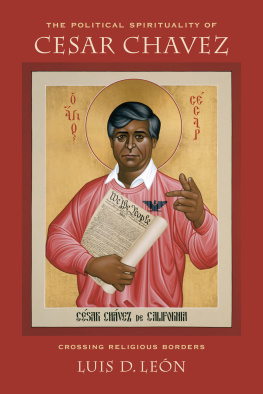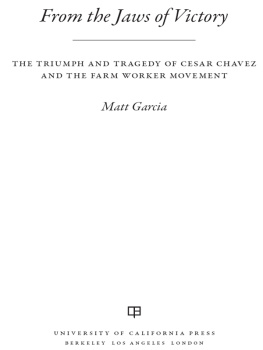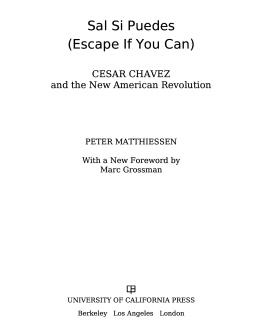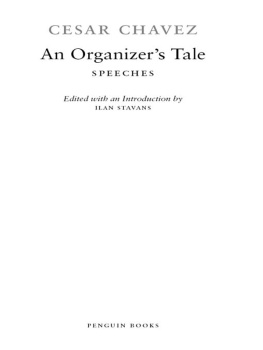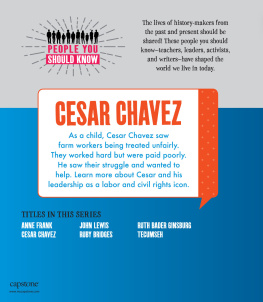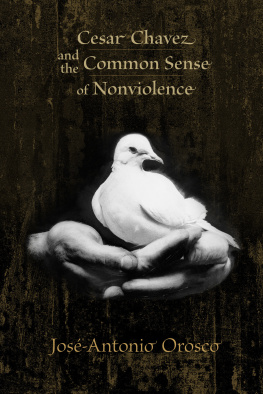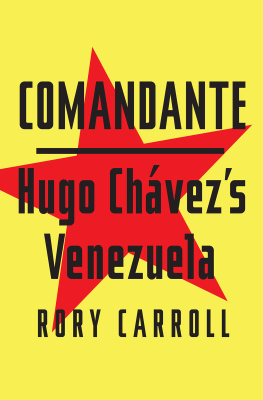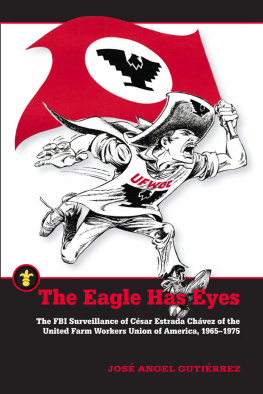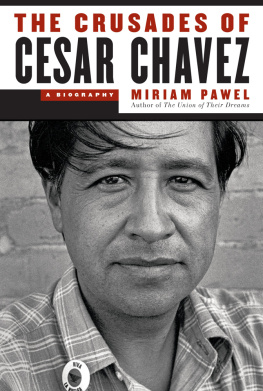PREFACE
As I write this preface, laboring under a tight deadline, having worked on the manuscript for a more than a decade now, I realize that the date of its final submission to the University of California Press is March 31, 2014, which would have been Cesar Chavezs eighty-seventh birthday. Last year, 2013, when Chavezs birthday fell on Easter, the Internet giant Google honored the late leader with a doodle, a portrait of Chavez that filled the enlarged second o of the Google logo on the search engines web page. In response, the right-wing media condemned the Silicon Valleybased company for slighting the Christian holiday with the drawing, declaring that users would replace Google with Bing, which adorned its home page with colorful Easter eggs.
The debate continues on how best to remember the late labor leaderor how to forget him. This book, instead of allying itself with one or the other faction claiming this discursive terrain, pursues a course that will, however unintentionally, no doubt upset some readers. Chavez sometimes gave differing accounts of his life, creating a powerful mythological identity that was also messy and incoherent. Since his death, his legacy has become a matter of considerable deliberation.
I attended the funeral of Cesar Chavez and remember it well. A senior scholar at the University of California, Santa Barbara, rented a car and recruited a fellow doctoral student and me to make the six-hour mountainous drive to the legendary town of Delano, where the United Farm Workers established its first headquarters at the Forty Acres complex. I considered it a pilgrimage to a sacred place haunted by the ghost of Chavez; until then I had only read about it, seen images, had dreams. Even though I was not yet in preschool at the time of the love fast of 1968, Chavezs signature event, I felt the indelible effect of his aura as leader and national spokesman on my Chicano imagination. His deathsudden, early, tragicshocked the Latina/o community. We drove mostly in silence, our thoughts clouded, like the highway obscured by an early morning fog that lingered low and wet on California Route 55. I tried to fathom the significance of the event, the man. Who was Cesar Chavez?
In my Chicano history courses I was taught a revised version of the standard hero narrative. As it turned out, in that version Chavez was primarily a labor leadera role that placed him at once in- and outside Chicano identity, linking him more to a historically Mexican American identity. I was dismayed by this limited historical representation of Chavez, but I accepted it. It was at his funeral that I came to believe there was more to his story than any single academic narrative could capture and complete.
When we arrived in Delano, I was stunned by the enormous crowd: hordes of mourners stretched as far as the eye could see across the flat, dusty picking fields. I was delighted by the collective spirit of the people; animated, exuberant, musical, insistent. It was again 1968 for this one day of the final decade of the century. The crowd surged around him as they mourned, assembled before Chavez in death as in life. He was encased in an unpainted pinewood casket made by his brother Richard Chavez. Many groupsthe UFW, Catholic priests, nuns, Protestant churches, environmentalists, Chicana and Chicano activists, lesbian feminists, universities, high schools, labor unions, libraries, and moreheld signs representing a multiplicity of causes, all led by a small brown cadaver in a simple splintering box.
When the body of Chavez arrived at the tent to receive its final despedidas, or formal goodbyes, politicians and Hollywood celebrities spoke from a makeshift pulpit. Among those paying their respects were the Reverend Jesse Jackson and members of the Kennedy Family: Ethel and her sons Joe and Robert Jr. Outside young Chicanas dressed as gangbangers took turns performing elaborate genuflections; I was dazzled by the choreography and the poetic reinterpretations of the ancient ritual as teen after teen took her turn on the impromptu stage. Cardinal Roger Mahony of Los Angeles led the funeral Mass. In life the religious ceremonies Chavez arranged were characteristically ecumenical. But his final ceremony, his funeral, was officially and exclusively Catholic. (A seating section was reserved for clergy of other faiths.)
Later, deep in the bowels of UCSBs Chicana/o studies archives, I discovered another Chavez. His name was prominent in the movement newspapers, not only as a labor leader, not only as a Catholic leader, but also as a distinctly and broadly spiritual and moral leader. This is the Chavez I set out to learn about, describe, and interpret. This book represents my humanist genuflection: esto es mi despedida.
ACKNOWLEDGMENTS
Research for this project began in earnest while I was in residence at the Stanford Humanities Center, which supported this work with an external faculty fellowship for the academic year 20023.
This research was also supported by grants from the American Academy of Religion and from the Jesuit Foundation. Denver University sponsored this project through multiple grants from the Faculty Research and Professional Development programs, as well as additional funding from the Latina/o Center for Community Engagement and Service, the Center for Inclusive Excellence, and the Interdisciplinary Research Incubator for the Study of Inequality.
Many generous colleagues remained in conversation with me about the book, helping me to navigate the complicated terrain of Cesar Chavez studies. I appreciate their attentiveness and their useful suggestions. They include: Davd Carrasco, Theresa Delgadillo, Darrin Hicks, Jane Iwamura, Gary Laderman, Lois Lorentzen, Timothy Matovina, Lara Medina, Laura Prez, Tink Tinker, and Miguel de la Torre. Im also grateful for the support and friendship of my colleagues in the Religious Studies Department at the University of Denver who who listened to me and responded with valuable thoughts and recommendations: Carl Raschke, Greg Robbins, Ginni Ishimatsu, Alison Schofield, Sandra Dixon, and Andrea Stanton. Friends and colleagues across DU helped shape and inform my work in countless ways, particularly Deb Ortega, in her role as director of the Latina/o Center and as friend and mentor.

